Biophilic Design Integration: developers and architects are bridging the Urban and the Natural to revolutionize our landscapes.
The modern architectural landscape is witnessing a transformative shift, one where the confines of concrete and steel are interwoven with the lushness of nature. As urban areas burgeon, there arises an inherent desire to connect with the organic, leading to a harmonious blend of structural design and biophilia. This merging not only reshapes our visual landscapes but also offers a renewed perspective on sustainability and well-being.
We explore the profound impact of this synergy, demonstrating how consultations and collaboration with developers and architects are ushering in a verdant renaissance in urban planning and design.
What is biophilic design?
At the confluence of architecture and nature lies biophilic design, an innovative approach that weaves the patterns, forms, and substances of the natural world into our built environment. Rooted in our innate love for nature – the term ‘biophilia’ literally means ‘love of life’ – this design philosophy doesn’t just mimic nature’s appearance but also seeks to evoke the same feelings of tranquility and wellness that the great outdoors offers.
Whether it’s by incorporating natural lighting, using materials that mirror the outdoors, or integrating living green elements like plants and water, biophilic design reconnects us with nature even within the confines of urban jungles. The result? Spaces that nurture our well-being, boost productivity and remind us of our symbiotic relationship with the Earth.
How Architek starts the conversation with green roofs.
A sprawling rooftop garden, an eco-friendly oasis, or a sustainable insulation system are just pieces of biophilic design, but the whole comprehensive living building design and its intertwining options are more than meets the eye. These all merge into how green roofs give life to buildings. Working closely with architects and developers, from the concept and schematic design phase to providing solutions in IFT/IFC phases after construction has started, we have identified the most cost-efficient system. This allows us to keep the harmony of unique features that build and expand the vision of the design team and project stakeholders.
Our goal is to develop ideas that will bring nature closer and re-imagine the foundation of our urban cities. Starting with exploratory discussions as a key component of the integration process of nature to the needs of the project.
Biophilic design from start to conceptual.
Living architecture might be organic, but it still needs guidance. We are challenging the status quo to bring real solutions that go further than ornamental green walls. At our core, we place a strong emphasis on the initial schematic and concept design phases for all projects to which we bring our industry expertise.
“Biophilia is not merely a luxury; it touches at the very core of what it means to be alive.” — Edward O. Wilson, biologist and author who introduced and popularized the hypothesis of biophilia.
Nature needs structure to adapt to our cities; applying our nature-inspired, solution-oriented approach and with additional resources of architectural stainless steel from Rope + Cable Canada, we mold and weave organic materials like high-grade stainless steel into the existing frame of the urban landscape, including skyscrapers, fall protection, railing systems, bridge safety systems, even art installations and more. Our long-established and highly regarded expertise covers all aspects of creating spaces that are not only aesthetically pleasing but also contribute to the environment’s physical and mental well-being.
Our solution-based approach and level of assistance with designing green roofs, green façades, living walls and site water management systems is the first step to bringing you closer to a verdant environment. Installation naturally comes next, where our Green Roof Professionals (GRPs) ensure the correct methodology of installation is applied, and while your biophilic design flourishes our maintenance service will skillfully keep order into the growing designs and changing seasons.
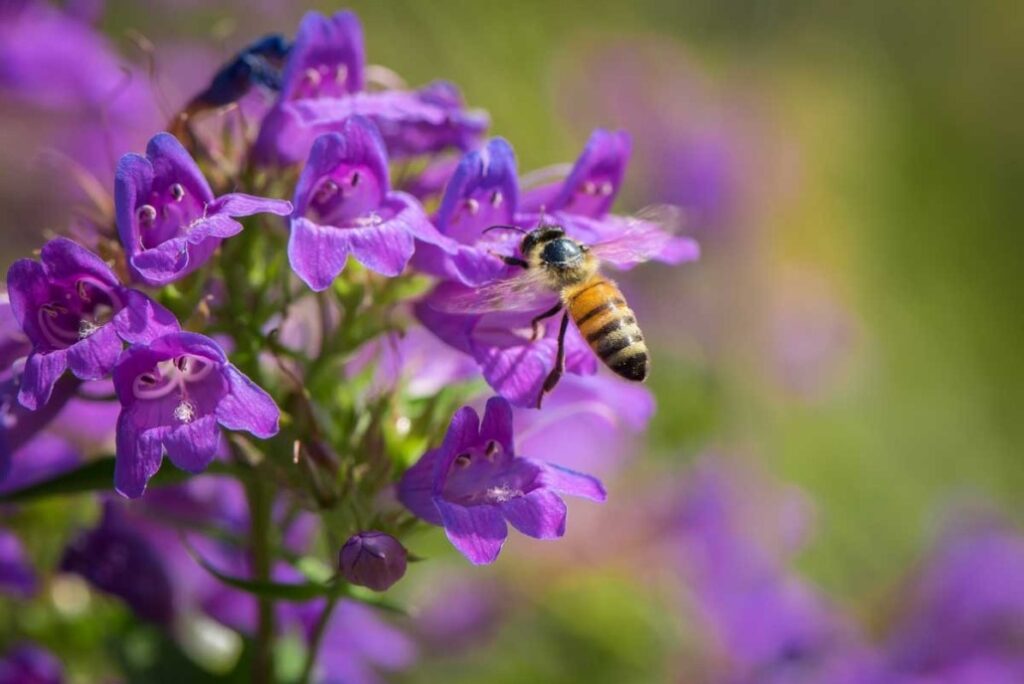
Nature thrives atop VanDusen Garden: a bee dances over a radiant purple bloom, heralding urban renewal.
Green space that is here to thrive.
A green city can only grow and flourish through dedication and the power of a vision. Installation is not the end of our process; the establishing period usually considers the first year after. It is vital to anchoring a piece of nature in its new environment. This is why we consider this phase on every project, as we are committed to having every installation thrive and blossom.
Upon each project’s final stage, we introduce a structured and purpose-driven maintenance program. During this year, our dedicated maintenance team of horticulturalists will provide care to the living architecture (soil reports, taking soil samples and sending them away for testing, removing invasive species, and ensuring the system is working properly). Following this period, count on us through our long-term maintenance programs developed specifically for each project, including quarterly soil reviews, system operating notes and compliance with the local building warranties, among other things.
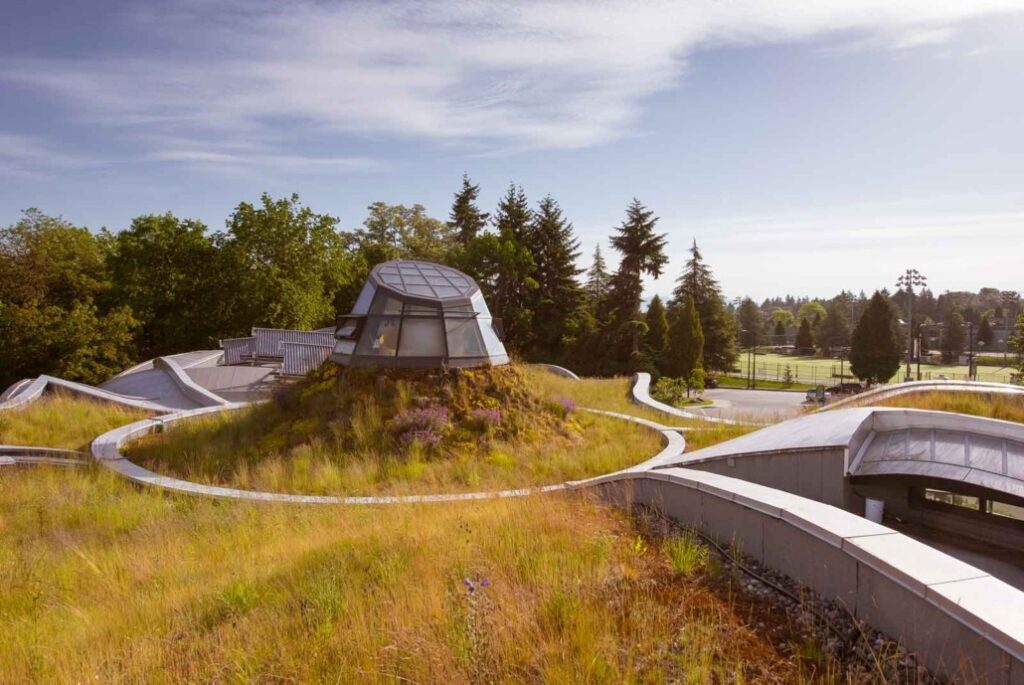
VanDusen Botanical Garden was designed by our team to meet The Living Building Challenge requirements for sustainable buildings.
This all is a testament to visionary thinking and a more dedicated, thought-provoking, approach to processes that integrate urban sustainability. Every successful transformation begins with a dialogue, a spark of insight tailored to the nuances of each project. As we stand on the precipice of an architectural renaissance, the opportunity to be part of this transformative journey awaits those ready to embark. Your next project could be the stepping stone of this change, leading by example in bridging the urban with the natural.
We enjoy complex and challenging projects, get in touch with us to get into the weeds and explore your vision further.
 Greenroofs.comConnecting the Planet + Living Architecture
Greenroofs.comConnecting the Planet + Living Architecture
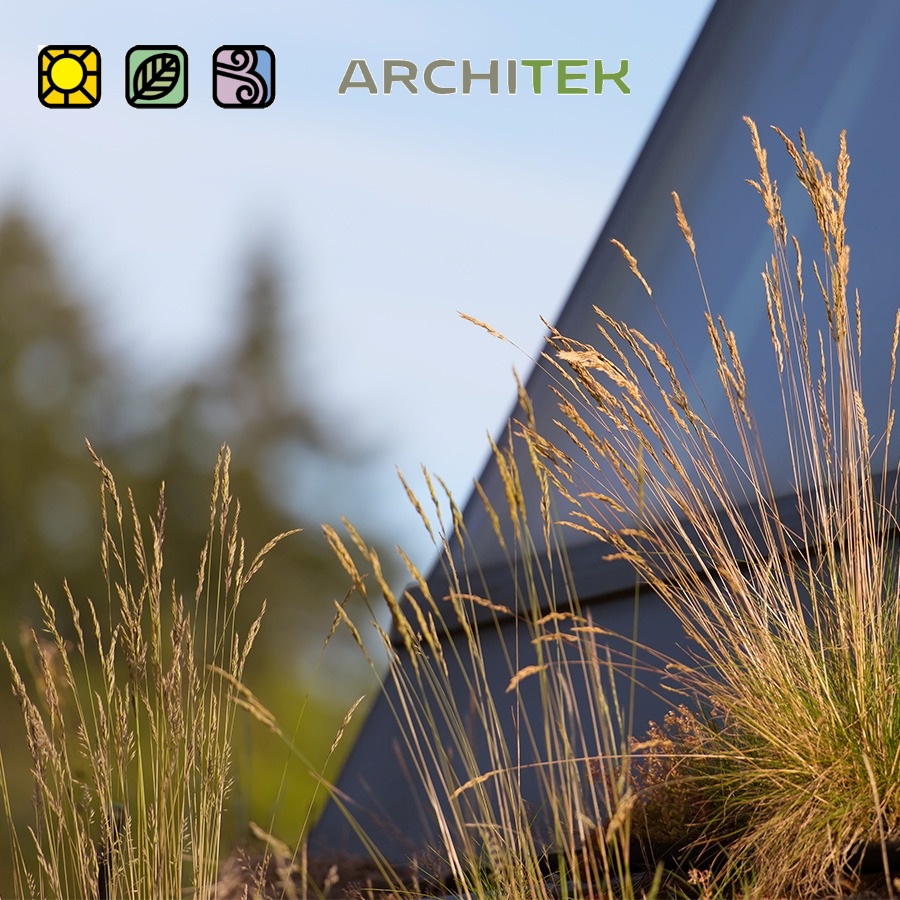
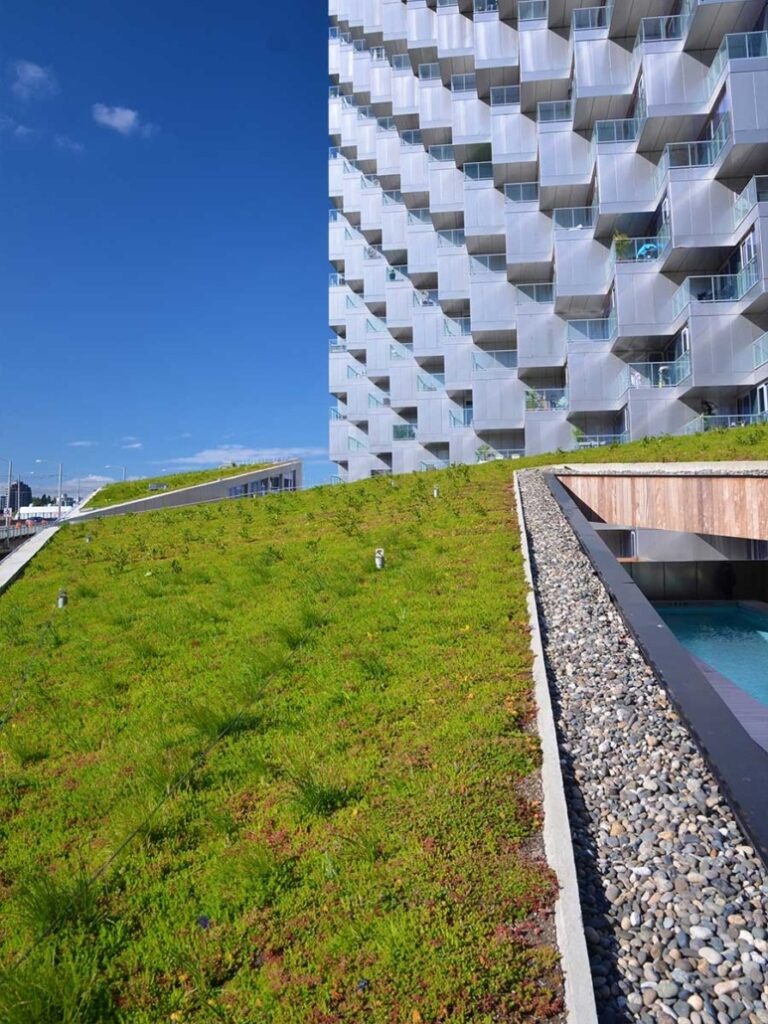
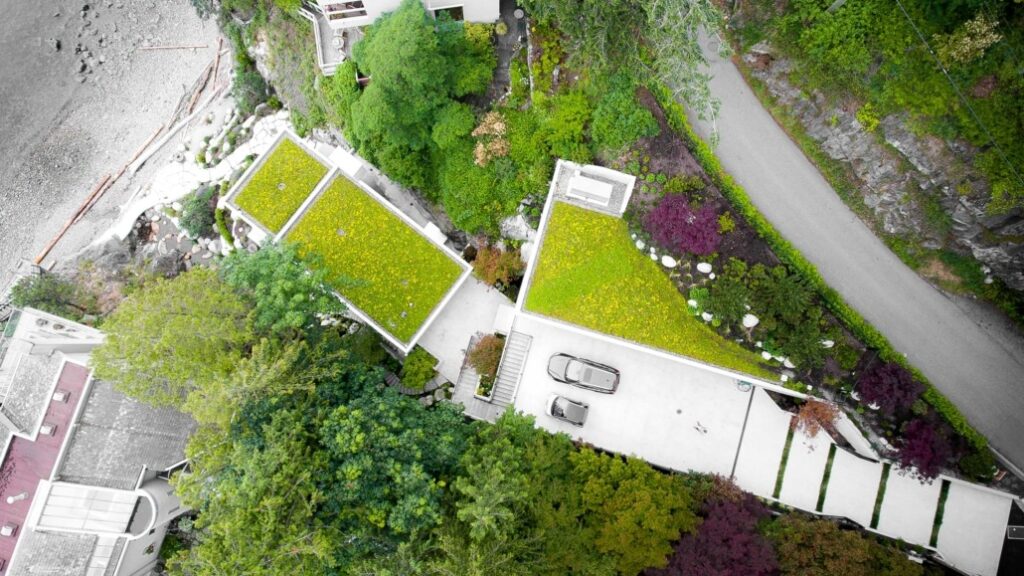



RESUMEN SEMANAL 2 – Interiorismo, decoración y arquitectura
[…] Este artículo en inglés nos habla sobre el diseño biófilo y los sistemas de techos verdes que co… Según el artículo, el diseño biófilo se enfoca en la conexión entre la naturaleza y los seres humanos, y busca crear espacios que sean saludables y atractivos para las personas y la vida silvestre. Los techos verdes son una forma de implementar el diseño biófilo en los edificios, ya que proporcionan una superficie vegetal que puede ayudar a reducir la contaminación exterior del aire y del agua, reducir la temperatura y mejorar la calidad del aire interior. Además, los techos verdes pueden proporcionar un hábitat para la vida silvestre y mejorar la estética de los edificios y las áreas urbanas. […]